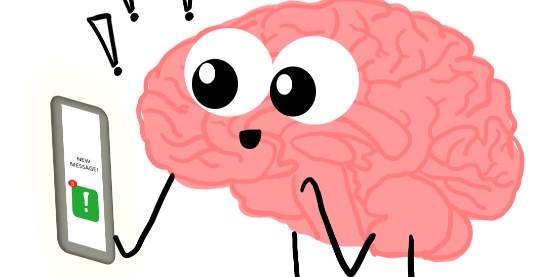
What is dopamine?
Dopamine is a type of monoamine neurotransmitter. It’s made in your brain and acts as a chemical messenger, communicating messages between nerve cells in your brain and your brain and the rest of your body.
Dopamine also acts as a hormone. Dopamine, epinephrine and norepinephrine are the main catecholamines (a label based on having part of the same molecular structure). These hormones are made by your adrenal gland, a small hat-shaped gland located on top of each of your kidneys. Dopamine is also a neurohormone released by the hypothalamus in your brain.
What’s the role of dopamine in my body?
Dopamine plays a role in many body functions.
As a neurotransmitter, dopamine is involved in:
- Movement.
- Memory.
- Pleasurable reward and motivation.
- Behavior and cognition.
- Attention.
- Sleep and arousal.
- Mood.
- Learning.
- Lactation.
As a hormone, dopamine is released into your bloodstream. It plays a small role in the “fight-or-flight” syndrome. The fight-or-flight response refers to your body’s response to a perceived or real stressful situation, such as needing to escape danger.
Dopamine also:
- Causes blood vessels to relax (at low doses, it acts as a vasodilator) or constrict (at high doses, it acts as a vasoconstrictor).
- Increases sodium (salt) and urine removal from your body.
- Reduces insulin production in your pancreas.
- Slows gastrointestinal (GI) (gut) content movement and protects your GI lining.
- Reduces lymphocyte activity in your immune system.
How does dopamine make someone feel happy?
Dopamine is known as the “feel-good” hormone. It gives you a sense of pleasure. It also gives you the motivation to do something when you’re feeling pleasure.
Dopamine is part of your reward system. This system is designed, from an evolutionary standpoint, to reward you when you’re doing the things you need to do to survive — eat, drink, compete to survive and reproduce. As humans, our brains are hard-wired to seek out behaviors that release dopamine in our reward system. When you’re doing something pleasurable, your brain releases a large amount of dopamine. You feel good and you seek more of that feeling.
This is why junk food and sugar are so addictive. They trigger the release of a large amount of dopamine into your brain, which gives you the feeling that you’re on top of the world and you want to repeat that experience.
How might I feel if I have the right amount of dopamine?
If you have the right balance of dopamine, you feel:
- Happy.
- Motivated.
- Alert.
- Focused.
How might I feel if I have a low dopamine level?
If you have a low dopamine level, you might feel:
- Tired.
- Unmotivated.
- Unhappy.
You may also have:
- Memory loss.
- Mood swings.
- Sleep problems.
- Concentration problems.
- A low sex drive.
How might I feel if I have a high dopamine level?
If you have a high dopamine level, you might feel:
- Euphoric.
- Energized.
- A high sex drive.
The negative side of having high levels of dopamine include:
- Having trouble sleeping.
- Having poor impulse control.
- Being more aggressive.
